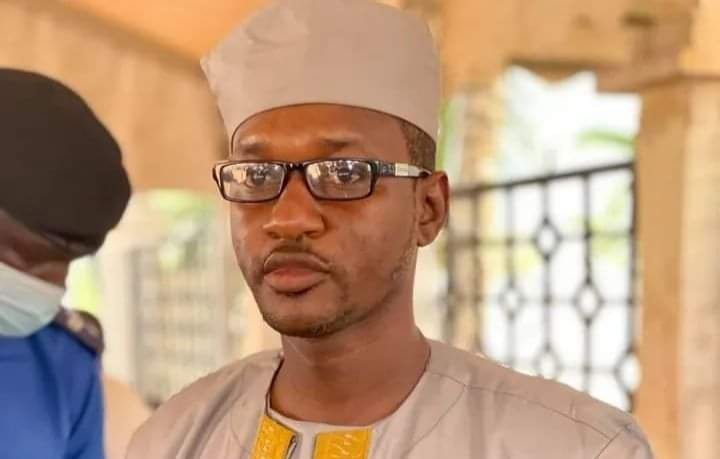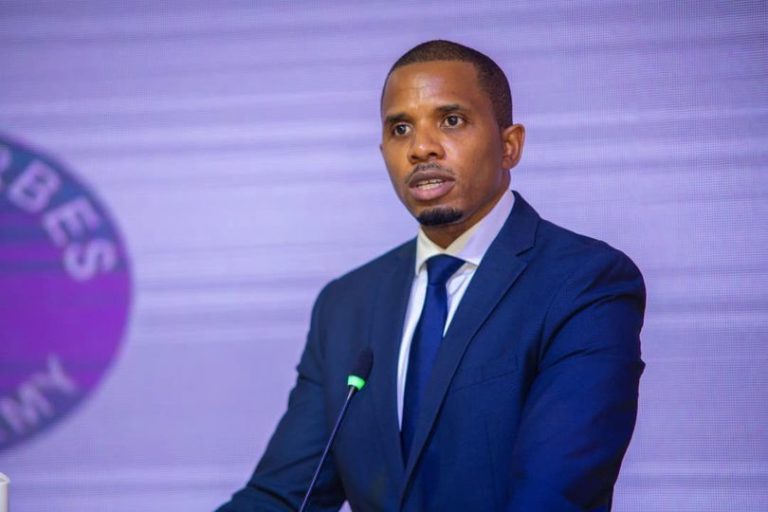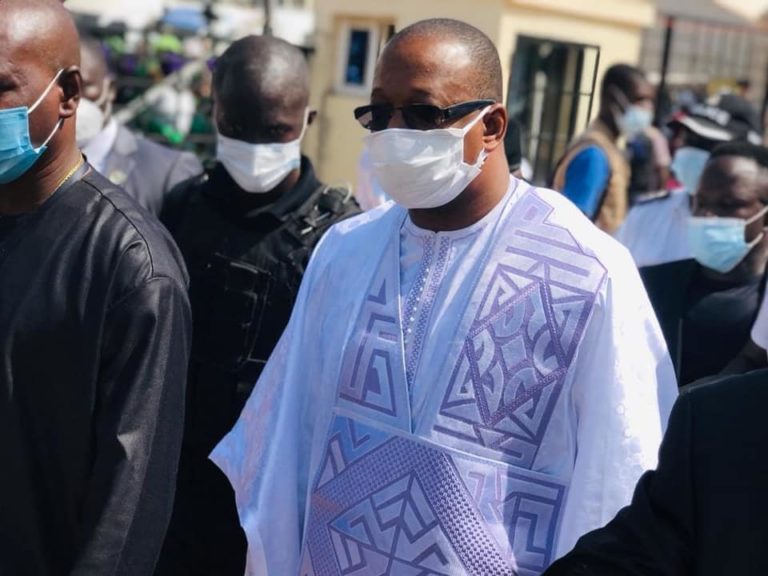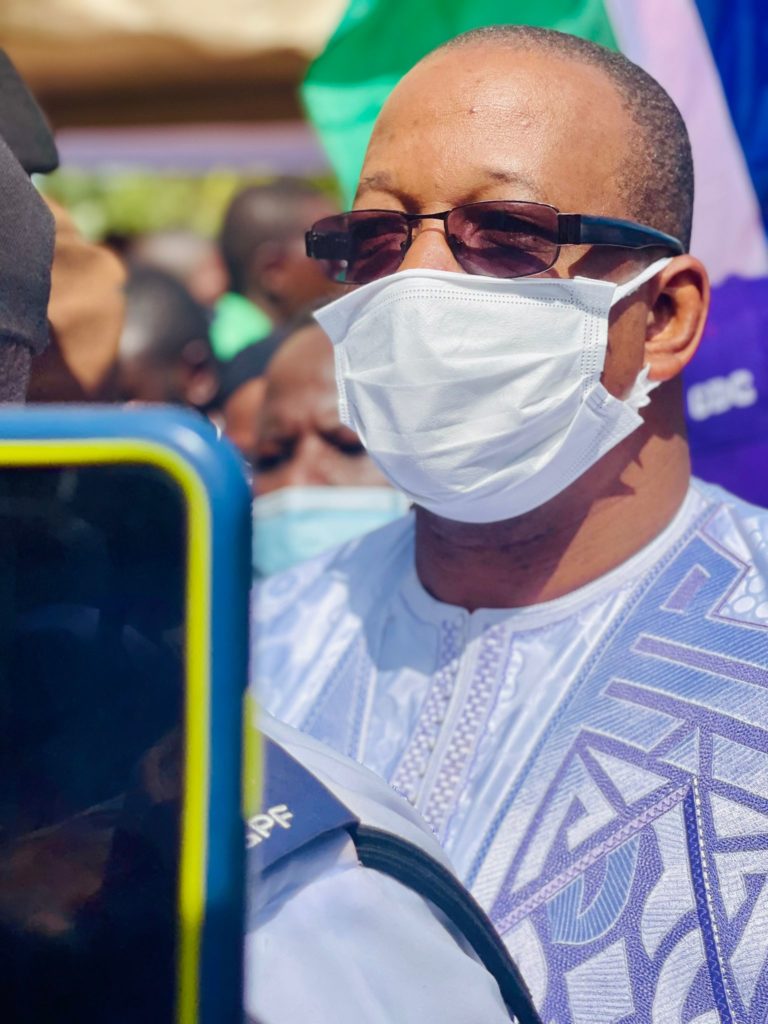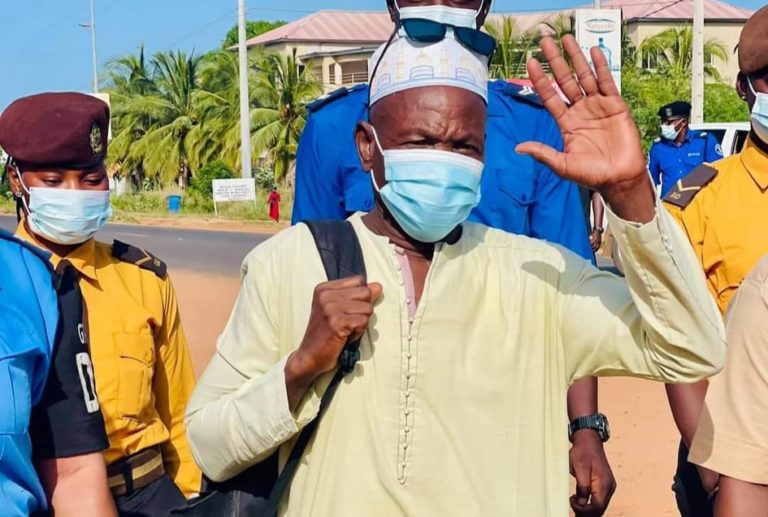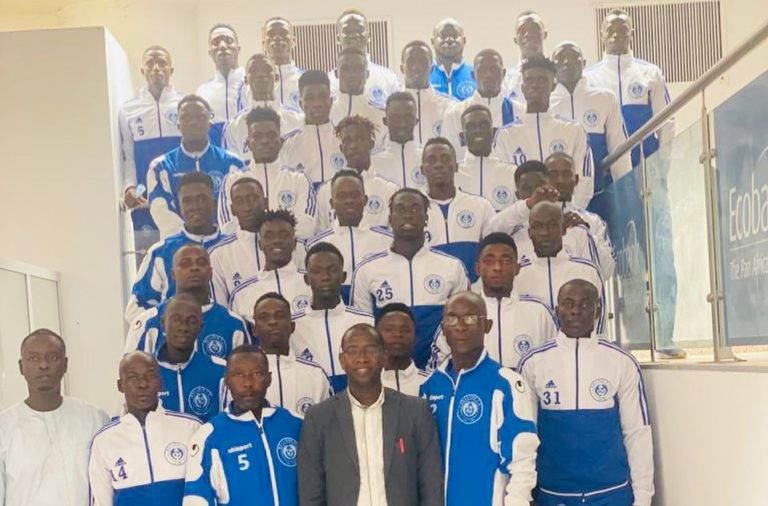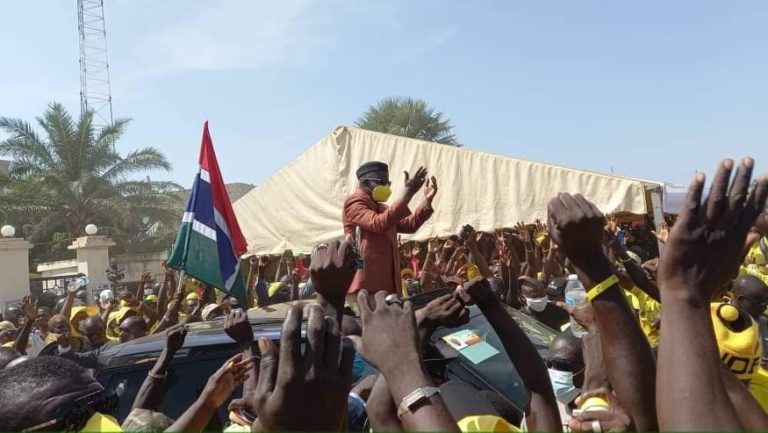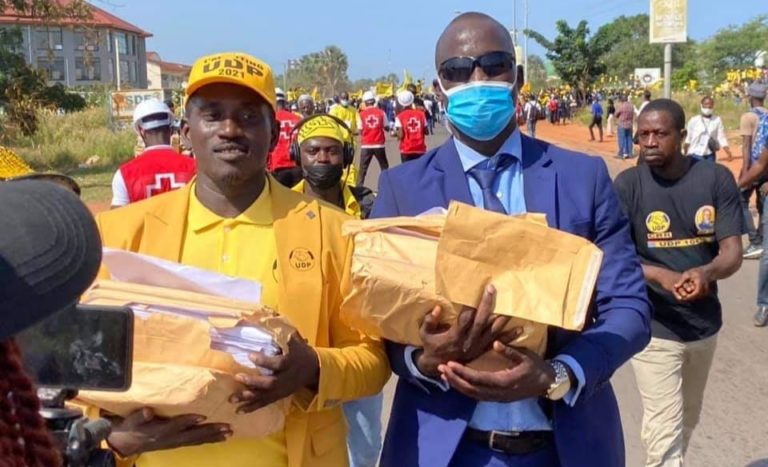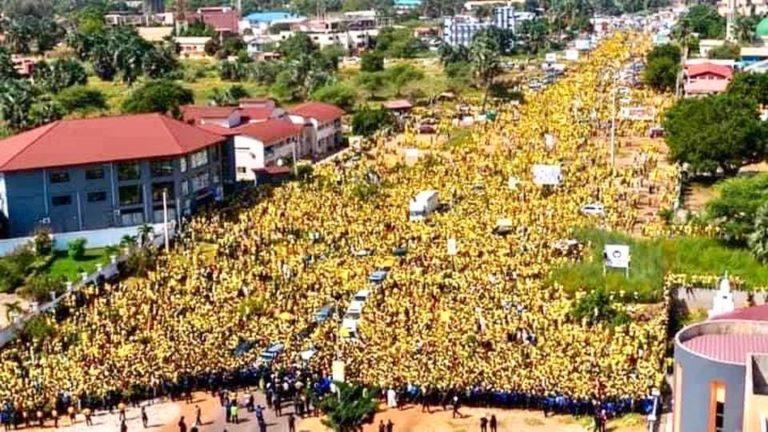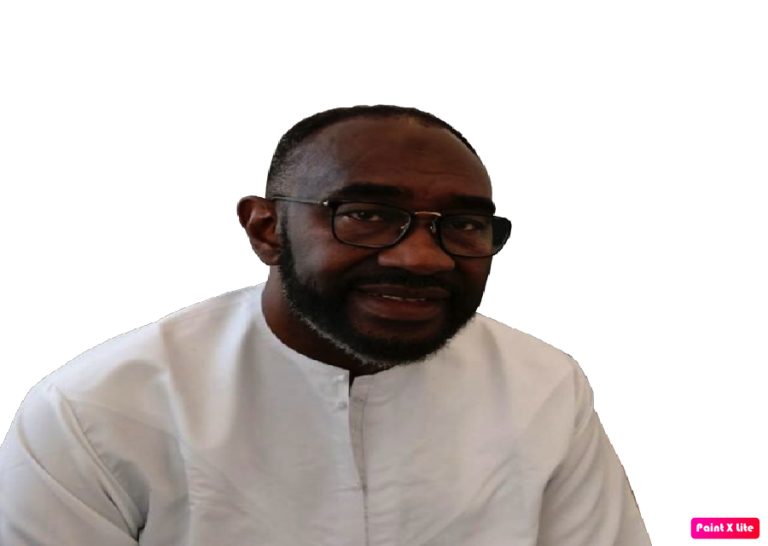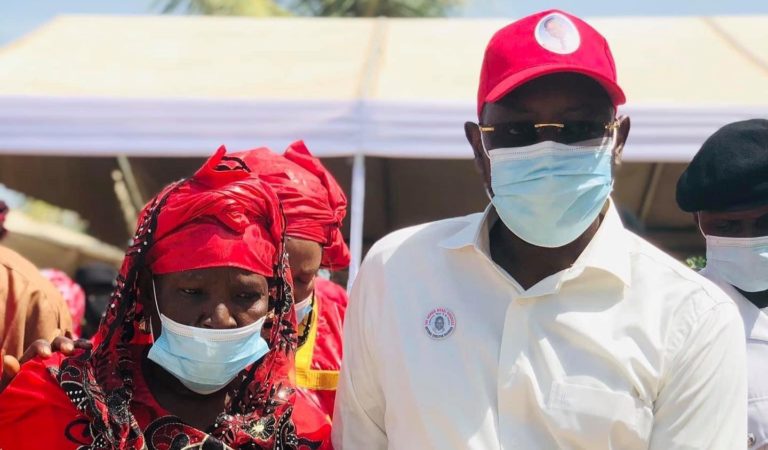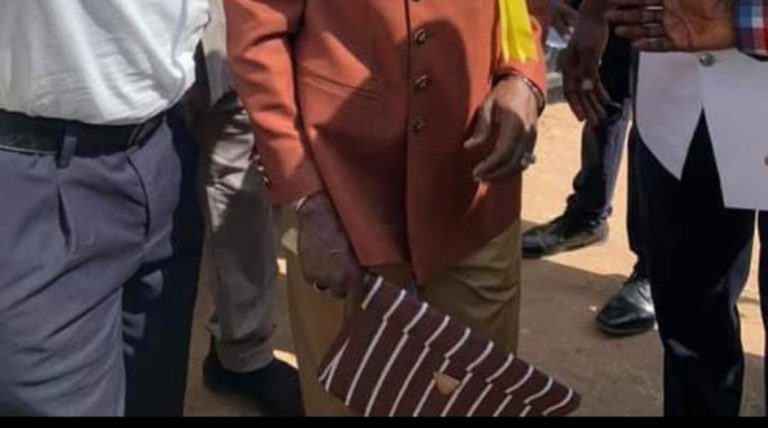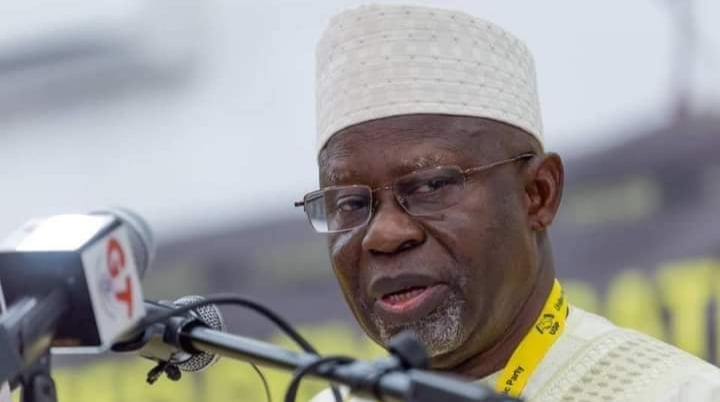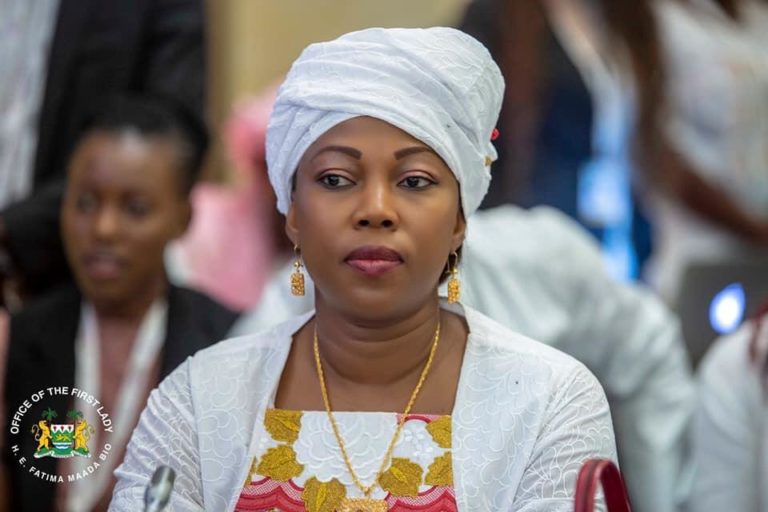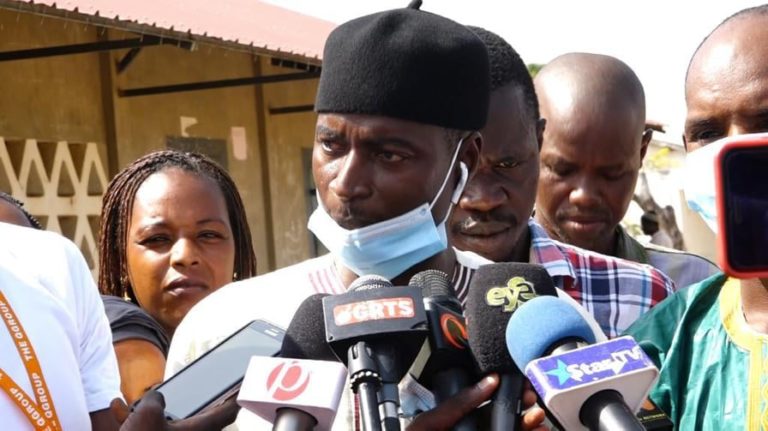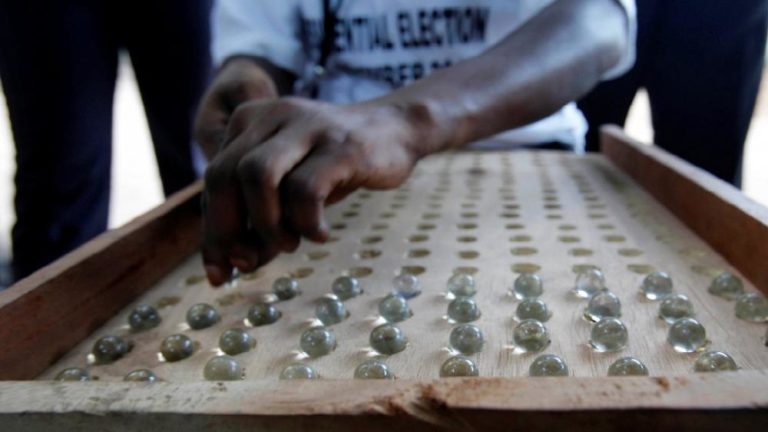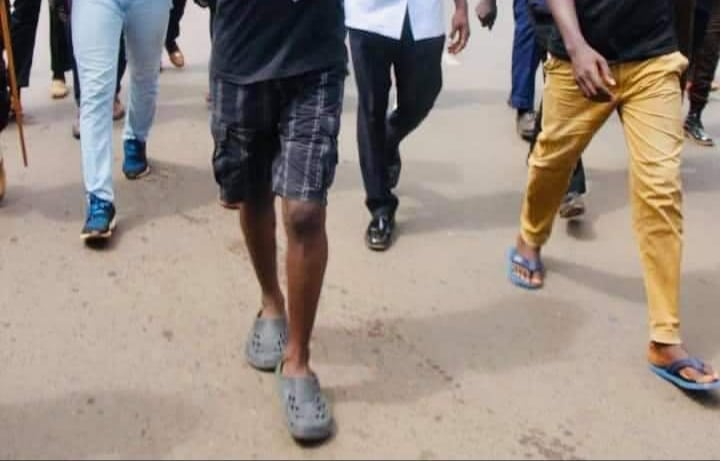The leader of the Citizens’ Alliance (CA) has said that when he becomes president of The Gambia, he shall prioritise Governance and Financial Reforms.
Dr. Ismaila Ceesay was speaking to the press immediately after presenting his nomination papers to the Independent Electoral Commission (IEC) at Election House.
“We need serious economic reforms in this country, we must get the governance right and we will get everything right in this country,” Dr Ceesay said.
He further noted that the 2021 election is about the life and livelihoods of children yet unborn. For that reason, CA he said does not only focus on the immediate challenges but those that may come up in the future.
He revealed that The Gambia has about 2.5 million people, but can barely provide adequate food, electricity, pipe born water and decent jobs for its citizens. “What will happen when the country grows to 5 million people,” he asked.
“We will reach 5 million people in 25 years based on predictions, what will happen when we would have reached 5 million people in 25 years when we cannot even adequately cater for the small number of people we have now,” Dr Ceesay said.
He revealed that in almost every hospital in the country on a daily basis there is a man standing outside waiting to be told if the wife survived childbirth, and a young man thinking where to find a job.
We asked about the coalition for change 2021 alliance formed by five parties including the Citizens’ Alliance he said they have not decided on the fate of the alliance but will make their decision public when they decide.
We emphasised that he would ensure all public officials declare their assets as stated in his party’s manifesto.
“We will call for the lifestyle audit of all the public officials. This will show we are serious about corruption, transparency and accountability,” he said.
Aside from governance and financial reforms he also mentioned job provision and education as other priorities. He used the moment to express his support for all calls which seek justice for victims of heinous crimes.
“We shall punish violators of human rights and ensure victims are fully compensated. Making sure dictators and perpetrators of heinous crimes pay for their crimes is a must. It is not only about Yaya Jammeh it is about anybody who has committed crimes. No Gambian should be immune from justice, that is the only way we can have true reconciliation and stability,” Dr. Ceesay said.
Dr. Ismaila Ceesay was born in November 1974 in Brikama West Coast Region. He did his basic education at Brikama Primary School and secondary education at Albert Academy Secondary School in Freetown, Sierra Leone. He speaks diverse languages including English, Mandinka, Wollof, Swedish and Aku.
Dr. Ceesay holds a PhD in African Studies from the University of Edinburgh.
He served as Senior Lecturer and the Head of Political Science department at the University of The Gambia (UTG)
Dr. Ceesay’s research interests include African politics, information and communications technology and the intersection of security and youth issues. He has authored numerous articles on these topics in peer-reviewed journals and other esteemed publications such as ‘African Renaissance’, ‘African Foreign Affairs’ and the ‘African Election Series’ of the London School of Economics. Dr. Ceesay has led many international research projects as a consultant.

